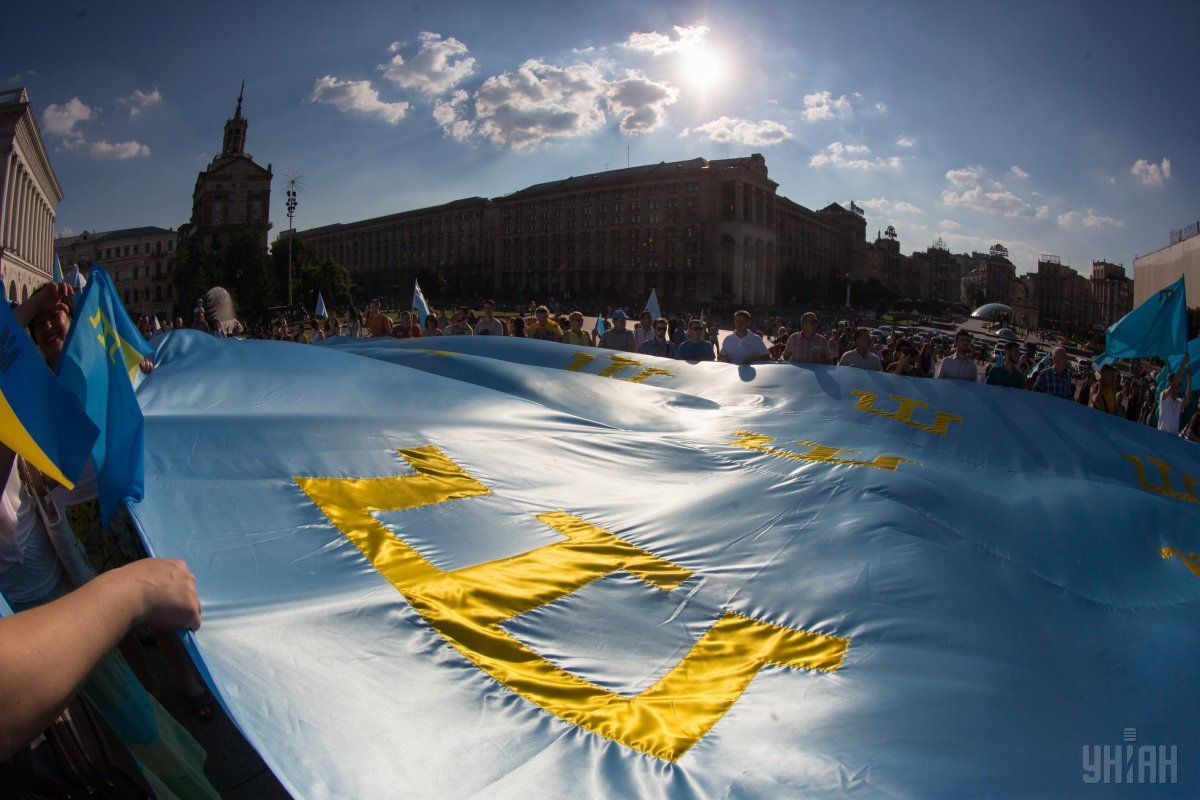
Two-and-a-half years after the Russia’s grab of Crimea, Crimean Tatar activists accuse the Russians of trying to scare them into submission, Crimean Tatar activist Ayder Muzhdabayev wrote in his column for The Guardian.
“There are no barbed-wire fences in this new hybrid ghetto of Vladimir Putin’s – yet. Instead of wire there is hate-filled TV propaganda, total surveillance and constant harassment,” he said.
With each passing week, there are new reports of Crimean Tatars detained, questioned or simply disappeared.
“They have already realized that they can’t get Crimean Tatars to love the authorities, so instead the task now is to silence them” said Ilmi Umerov, by telephone from Bakhchisarai in Crimea. “If they are scared, they won’t speak, they won’t voice their grievances, and they won’t shout that Crimea is Ukraine.”
Umerov has been accused by authorities of “separatism”, a charge that potentially carries a jail term, for public statements that Crimea is part of Ukraine. In August, a court in Crimea’s capital, Simferopol, ordered him to undergo psychiatric evaluation. He spent three weeks locked up in a psychiatry ward, and still faces a trial at some point.
Read alsoRFE/RL: UN panel condemns rights abuses in Crimea, calls for monitoringTanya Cooper, Ukraine researcher at Human Rights Watch, called Umerov’s treatment “a shameful attempt to use psychiatry to silence him and tarnish his reputation, a popular practice against dissidents in the Soviet Union”.
Some Crimean Tatars have gone over to work with the Russians, either out of conviction or from a belief that with Russia apparently in Crimea for the long haul, finding some way to work with the authorities is the best option. Of the community leaders who remained opposed to Russian rule, most have been either banned from entering the region, such as the long-standing Crimean Tatar leader Mustafa Dzhemilev, who is now based in Kiev, or had criminal charges launched against them.
Another community leader, Akhtem Chiygoz, is on trial in Simferopol for disturbances that occurred during the annexation period, when pro-Russia forces clashed with Crimean Tatars activists and two people died. Witnesses say Chiygoz was trying to calm the crowds.
Read alsoUkraine MFA: Repressive machine in occupied Crimea gaining momentum in order to destroy Crimean Tatars“I think he’s a hostage and it’s necessary for the Kremlin to have a show trial, to make sure the dangers of protesting are clear,” said Nikolai Polozov, Chiygoz’s lawyer.
Although the disturbances occurred during a time when, even according to Russia, Crimea was still part of Ukraine, Russia has passed a law in which crimes from the Ukrainian period can now be tried under Russian law. The amendment “goes completely against international law”, according to Polozov.
For other Crimean Tatars, there is a constant sense of fear something bad could happen at any time, especially to those who make their voices heard. Crimean Tatars report frequent visits from Russian security service agents offering a peaceful existence in exchange for informing on the community.
Read alsoDzhemilev: No Illusions – Russia roots out Crimean TatarsIn May, activist Ervin Ibragimov disappeared in Bakhchisarai, with security camera footage from the incident appearing to show he was bundled into a traffic police car. He has not been heard from since.
“I don’t know why it happened, but I’m certain it had to be officials or people linked to them involved,” said his father, Umer Ibragimov, by telephone from Bakhchisarai. He said his son had noticed people following him in the days before the kidnapping.
Since the Russian takeover, all independent media outlets in the peninsula have closed down, most notably the Crimean Tatar channel ATR, which broadcast news throughout the annexation that did not chime with the Russian version of events. It was denied registration last year by Crimean authorities.
“The Crimean Tatars are not the only people being repressed in Crimea, but the reason they feature so prominently is because they are the only remaining compact population which is still not loyal to the Russians, and the only ones who are there to voice their opposition and their dissent,” said Krasimir Yankov of Amnesty International, who recently travelled to the region.
Read alsoHow Russia makes Crimean Tatars 'happy'For Umerov, life under Russian rule seems deeply unjust, especially as the entire Crimean Tatar community spent more than four decades in exile in central Asia, having been deported en masse by Joseph Stalin for alleged collaboration with the Nazis during the second world war. After decades of waiting and dreaming, they were finally permitted to return in 1989.
But even if he ended up going to prison, he said, nothing could convince him to leave Crimea again. “Crimea is my homeland, we fought for years to return here after being deported and there are absolutely no circumstances in which I would leave Crimea voluntarily. Full stop.”

